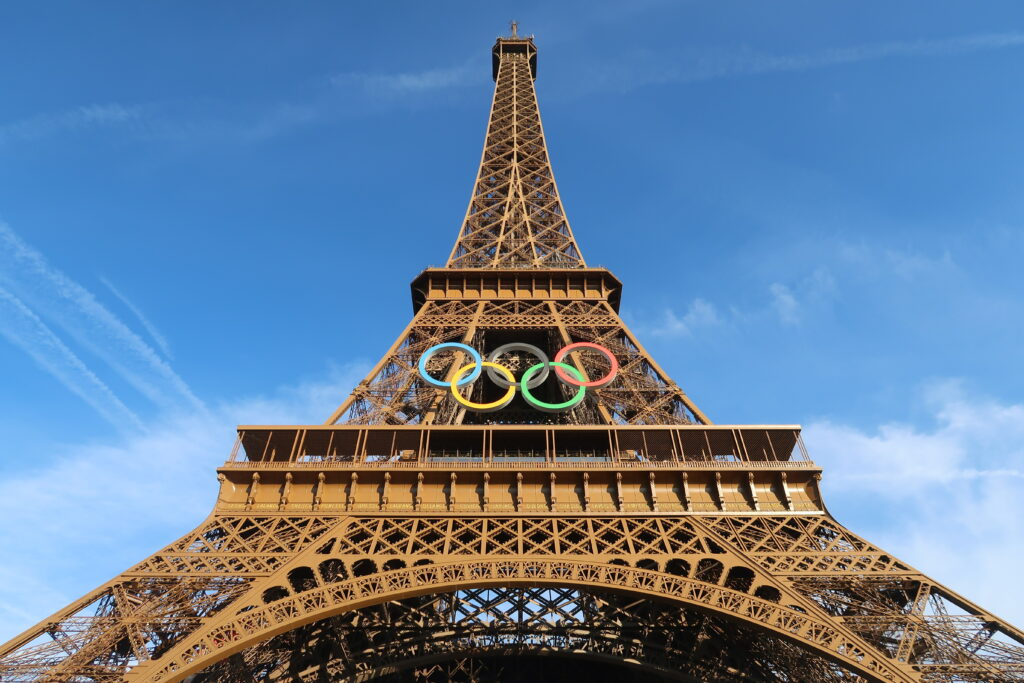
By: Rob Baum, CEO
The history of the modern Olympic Games dates back to 1896, and for over 125 years, most of the glory has rightfully gone to the athletes. In this special edition of “Innovators I Admire,” I want to take a moment to highlight some of the work that goes on behind the scenes to make the spectacle, storylines, and national pride come to life – the organizers of the 2024 Paris Olympic Games.
Shift to Sustainability
Until recently, organizing committees focused primarily on creating international spectacles, often neglecting sustainability and environmental impacts. They prioritized building extravagant permanent venues with little consideration for their future use, resulting in wasteful spending and significant environmental damage. The main goal was to showcase the host city’s prowess on a global stage, with minimal attention to long-term consequences.
While the 2020 Tokyo Summer Games took steps towards sustainability, such as using recycled materials for medals and incorporating renewable energy sources, no organizing committee has prioritized sustainability and environmental impact as much as the 2024 Paris Summer Olympics organizers. This year’s Games are setting a new standard by integrating sustainable and eco-friendly practices into nearly every aspect. I want to explore how they are achieving this remarkable feat.
Slashing the Carbon Footprint of the Olympic Games
Paris Olympics organizers have pledged to cut the Games’ carbon footprint by 50% compared to the previous Summer Games in Rio and London. They have reimagined nearly every aspect of hosting the event to achieve this ambitious goal. While only time will reveal the full extent of their success, it is clear that the Paris 2024 Olympics will set a new benchmark for sustainability, leaving a legacy of significantly reduced environmental impact.
Here are a few of the initiatives I found most interesting:
The Electric Grid
For the first time, the Paris Olympic Games will feature real-time energy monitoring, capturing data on electricity consumption, power demand, venue capacity, competition-related metrics, and onsite weather conditions—all displayed on a single dashboard. Over 100 smart electric meters will also collect comprehensive datasets. This information will be shared with future Olympic committees to help forecast energy impacts and track sustainability progress.
While Tokyo introduced renewable energy at the 2020 Games, Paris is going further by integrating a substantial mix of wind and solar power into the grid. This approach aims to cut carbon emissions by 80% compared to traditional sports events.
Diesel generators, typically used for non-grid-connected Olympic facilities, have been largely sidelined. Thanks to innovative engineering and strategic facility placement, nearly all venues are connected to Paris’s Olympic grid, significantly reducing noise and carbon emissions.
Transportation
The movement of spectators, athletes, and officials significantly contributes to the carbon footprint of the Olympic Games. To mitigate this, the Paris Games organizers have strategically leveraged the city’s existing mass public transportation systems, many of which already run on green energy.
All competition venues in Paris are accessible via public transit, reducing the reliance on vehicles. When public transit isn’t feasible, a fleet of electric, hydrogen, and hybrid vehicles has been deployed. This fleet is one-third smaller than those of past Summer Games, utilizing optimized pooling and vehicle management to ensure efficient and eco-friendly transportation.
E-Waste
Hosting the Olympic Games requires an immense amount of IT and computer equipment. Traditionally, this equipment is purchased without much consideration for its post-Games use, leading to significant e-waste and contributing to the overall carbon footprint. The Paris organizers recognized this issue and took proactive steps to address it.
For the Paris Olympics, over 70% of the IT equipment was leased rather than purchased. For the remaining equipment, the organizers developed plans to repurpose or recycle it, further reducing e-waste. This approach minimizes the amount of equipment that ends up in landfills after the Games, helping to curb the environmental impact as the Olympics move to the next host city, where much of this equipment would likely become obsolete.
The Medal Podium
I believe history will view the 2024 Paris Olympic Games favorably for the significant strides the organizers made in addressing sustainability issues head-on. By prioritizing sustainability from the start, these Games stand apart from any other in modern history.
What’s particularly commendable is the organizers’ commitment to transparency and collaboration. They’ve actively captured actionable data with the intent to share insights with future Olympic planners, ensuring that sustainability remains a central focus in the years to come. By learning from the successes and challenges of the 2024 Games, future events can build on this foundation.
Defying the lavishness that has become the norm in Olympic hosting was no small feat, but the groundwork laid by Paris has the potential to make sustainability a major theme in future planning efforts. Kudos to the 2024 Paris Olympic Games organizers for their innovation in creating a new sustainable model for hosting, and for their courage to place sustainability at the forefront on such a global stage. This was a collaborative effort, but the 2024 Paris Olympic Games organizers are truly innovators I admire.
To learn more about TechFlow’s innovation in Energy and Mobility Solutions, visit our website.



